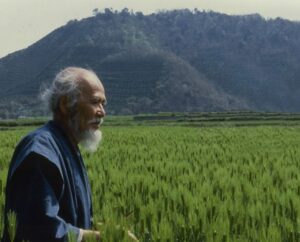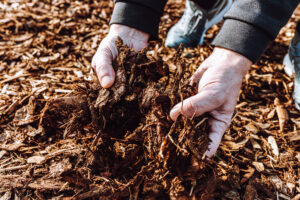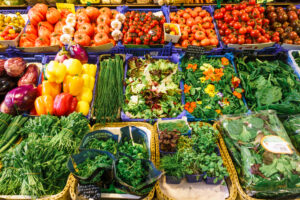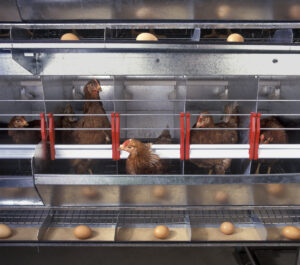The Do-Nothing Permaculture Concept by Masanobu Fukuoka
Masanobu Fukuoka was a Japanese Microbiologist who developed the ‘do nothing’ concept in permaculture. Inspired by Taoism and Zen philosophies, he applied their principles to natural farming.

Using only natural methods, with almost no human intervention, and without machines, fossil fuels, fertilizers, chemicals, etc., Masanobu Fukuoka was self-sufficient, and his rice yields were as high as the most productive farms in Japan.
The quality of his food was very high, yet he could sell it cheaply. He explained that his pricing reflected his low costs and that he didn’t want high-quality food to be accessible only to rich people.
While Masanobu Fukuoka’s book is full of spiritual, life, and farming learnings, we retained seven lessons from his book: ‘The One-Straw Revolution‘.
Learning 1 – What is the ‘do nothing’ in permaculture?
Masanobu Fukuoka considers nature the source of everything and an immutable point. Deviating from nature creates pollution and destruction.
For Masanobu Fukuoka, ‘do nothing’ applied to permaculture means observing what is natural, as opposed to what is non-natural. Agricultural techniques humans develop result in non-natural states, which are imbalanced and then corrected by nature.
“To the extent that trees deviate from their natural form, pruning and insect extermination become necessary.”
“Almost everyone thinks that “nature” is good, but few can grasp the difference between natural and unnatural.”
Fukuoka always wondered, “How about not doing this?” instead of “How about trying this?” as modern farmers do.
“I ultimately concluded that there was no need to plow, no need to apply fertilizer, no need to make compost, no need to use insecticide. When you get right down to it, few agricultural practices are really necessary.”
Learning 2 – What are the principles of the “do nothing” concept?
“The earth cultivates itself naturally through the penetration of plant roots and the activity of microorganisms, small animals, and earthworms”, said Masanobu Fukuoka. Inspired by nature, he developed the ‘do nothing’ method, which relies on five main pillars:
- Not to plow: Modern agriculture has brought about the practice of deep soil turning, commonly using plows. In contrast, natural farming operates seamlessly without the need for plowing.
- Not to fertilize: Applying chemical fertilizers promotes increased height in trees; however, it leads to soil depletion and a loss of essential vitality.
- Not to weed: Weeds play a crucial role in fertilizing the soil and should be managed rather than eradicated.
- Not to become dependent on chemicals: Nature maintains a perpetual equilibrium, where insects and diseases may appear but seldom reach a critical point that necessitates using chemicals. The elimination of natural predators is ill-advised, as it leads to more substantial damage in the long term.
According to Masanobu Fukuoka, a common misconception is that chemicals are indispensable for managing diseases.
For example, by stopping using improved rice varieties, reducing nitrogen application, and moderating water usage, solid roots will develop, diseases will disappear, and chemicals won’t be needed anymore.
- Spreading straw: The fundamental technique for cultivating rice and winter wheat involves spreading straw. This practice not only upholds but also enhances soil structure, rendering additional fertilizers unnecessary. The straw serves as an effective deterrent against weeds while also deterring sparrows.

Learning 3 – What are the limits to the agricultural scientific method?
Masanobu Fukuoka presented two main criticisms targeted at the methods used by scientists:
- First, scientists formulate theoretical and often impractical methods in real-world applications.
The reality is that natural factors are limitless, and conditions not only undergo perpetual changes but also exhibit variations from one location to another and even from one year to the next.
Factors such as geography, topography, soil condition, structure, texture, drainage, sunlight exposure, insect interactions, seed varieties, cultivation practices, and more must all be considered simultaneously.
This comprehensive set of variables renders the practical application of a scientific method unattainable and relegates the scientific method to a theoretical framework only.
- Second, researchers invent farming techniques that end up destroying the environment and then look for innovative solutions to solve the problems they created in the first place.
“Before researchers become researchers, they should become philosophers. They should consider the human goal and what humanity should create “.
As a result of the widespread of industrial farming methods and products, farmers now use chemicals several times during each growth season. Consequently, microorganisms and organic matter undergo depletion, leading to soil degradation, and crops develop a dependency on chemical fertilizers, which act as external nutrient sources.
Hence, the necessity for scientific methods arises not from the inadequacy of natural fertilization but rather due to the degradation of natural fertility.
Alternatively, by mulching with straw, cultivating shamrocks, and replenishing the soil with organic matter, soils have all the required nutrients to grow rice and winter wheat yearly.
Learning 4 – Why does natural farming go against government planning?
Mr. Fukuoka believes that practicing natural farming goes against the interests and plans of the government.
He urged governments to build a concrete action plan for solving agriculture pollution problems instead of organizing useless congresses presenting scientific and technical pollution reports.
Indeed, the direct answer to pollution is simple: stop using chemicals and machines in agriculture since crops can grow without chemicals, fertilizers, and machines. However, large chemical corporations become useless in such a case.
Because politicians’ power relies on these corporations, governments are unlikely to discuss any measures against pollution.
Learning 5 – How to solve pollution in the food industry?
One might question the significance of consuming non-seasonable fruits/vegetables.
Chemically processed food is predominantly available in response to consumer preferences.
Consumers often seek large, shiny, uniformly shaped, and flawless products, and producers cater to these demands by offering such items at a price reflecting consumer preferences.
Moreover, consumers’ willingness to pay premium prices for out-of-season produce has contributed to the widespread use of artificial methods and chemicals.

Producers add several chemicals in the sorting process to produce non-seasonable fruits/vegetables and achieve the desired perfect appearance, sweet taste, and fresh look.
As a result, consumers end up consuming fruits/vegetables laden with chemicals and lacking true freshness.
Also, because of the intensity of competition, farmers sell these fruits/vegetables at the lowest possible price while they incur high costs.
In conclusion, the modernization of agriculture has involved producing out-of-season food infused with chemicals – posing environmental risks and potential harm to human health – at a non-economically viable price for farmers.
On the contrary, Masanobu Fukuoka opted for natural farming techniques, resulting in no environmental harm and food that genuinely tasted natural and was more nutritious.
His method required less effort and fewer resources, translating to lower costs. Despite his products being perceived as high-end, Masanobu Fukuoka deliberately chose not to make excessive profits.
He set his prices lower than the market norm because he wanted natural, healthy food to be accessible to everyone, not just the well-off. He believed that for natural food to gain widespread popularity, it had to be reasonably priced.
Learning 6 – What is natural food?
Locally grown food, naturally cultivated in the vicinity, stands out as the optimal choice for consumption when considering both environmental and health impacts. But what exactly qualifies as natural food?
According to Masanonu Fukuoka, whether we’re talking about vegetables, fruits, wheat, or animals, any food that has been altered from its original state through chemical processes or engineered environments is considered unnatural.
Take, for instance, eggs from caged chickens or out-of-season cucumbers.

Food that maintains its proximity to its natural state preserves its authentic taste and boasts a higher nutrient content.
Opting for natural food implies sticking to what grows naturally in the vicinity.
While meat and other imported foods may be considered luxuries due to their higher energy and resource requirements compared to locally-grown produce, adhering to a diet centered on traditional, locally sourced vegetables and grains is more sustainable.
Persistently consuming imported foods and meat over the long term may lead to a potential food crisis, driven more by human desires for extravagance than a genuine scarcity in food production.
Learning 7 – What is the goal of farming?
“The ultimate goal of farming is not the growing of crops, but the cultivation and perfection of human beings.”
A farmer driven solely by profit becomes an industrialist who sells food derived from synthetic processes rather than natural sources.
As per Masanobu Fukuoka, such synthesized food lacks nutritional value and can disrupt the human body’s chemical composition.
Contrary to pursuing profits, a farmer’s primary objective should be cultivating the food necessary for personal consumption. A single grain of rice has the potential to yield a thousand more, and a row of turnips can provide enough for an entire winter.
While the life of a farmer on a small-scale farm may seem simplistic, embracing such a lifestyle opens avenues for spiritual growth.
In conclusion
Wild farming, drawing inspiration from Taoist and Zen philosophies, stands apart from other agricultural methods that strive for efficient manipulation of nature to attain specific objectives.
Unlike the pursuit of victory or avoidance of defeat, the essence of wild farming lies in embracing “non-action“.
Farmers should strive to achieve this state, employing a method without a method, acting in a spirit that neither seeks triumph nor opposition.
Anything else you learned from Masanobu Fukuoka that you want to share with us? Please comment and react.




